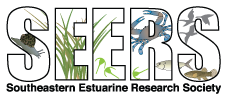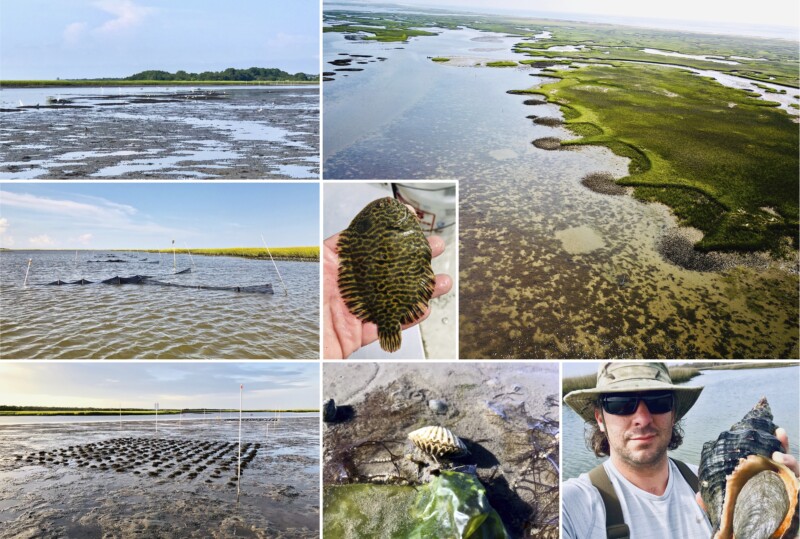Student Spotlight: Aaron Ramus
Meet Aaron Ramus! He is a Marine Biology PhD student under Dr. Larry Cahoon at the University of North Carolina Wilmington. Aaron was one of our SEERS Fall 2019 Student Travel Awardees!
He is investigating the direct and indirect effects of an introduced marine foundation species on estuarine biodiversity and community organization for his doctoral dissertation. Aaron tells us that the nonnative seaweed Gracilaria vermiculophylla has invaded coastal lagoons throughout the southeastern US, where it commonly forms mosaics of vegetated habitat on intertidal mudflats that were recently bare. His research employs large-scale manipulative experiments (in 64 m2 plots) and observational surveys (spanning >800 km of coastline) to test for multiple cascading impacts of this nonnative habitat former on the abundance and taxonomic richness of key West Atlantic faunal communities, including benthic invertebrates, nekton (finfish and decapod crustaceans), and seabirds, that, together, make up a significant chunk of estuarine food webs in the southeastern US.
Interested in finding out more about Aaron? Check out his research site: https://aaronramus.com/.
Check out some of his published papers:
- Thomsen MS, Ramus AP, Long ZT, Silliman BR (2018) A seaweed increases ecosystem multifunctionality when invading bare mudflats. Biol Invasions 21:27-36. doi: 10.1007/s10530-018-1823-z
- Ramus AP, Silliman BR, Thomsen MS, Long ZT (2017) An invasive foundation species enhances multifunctionality in a coastal ecosystem. PNAS 114:8580–8585. doi: 10.1073/pnas.1700353114
- Ramus AP, Long ZT (2016) Producer diversity enhances consumer stability in a benthic marine community. J Ecol 104:572–579. doi: 10.1111/1365-2745.12509


